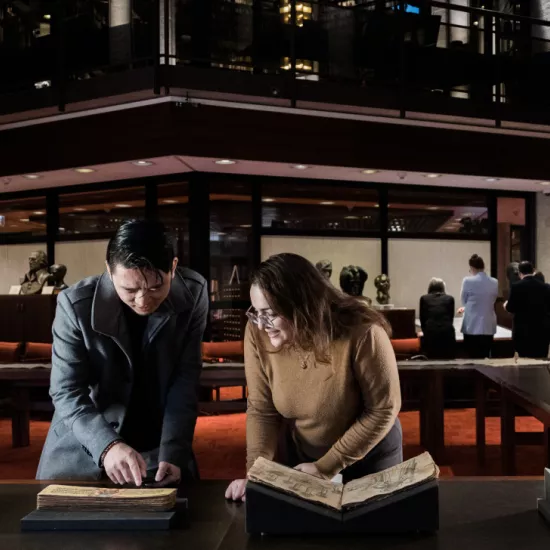UTM professor wins award for contributions to more equitable drug policy

Akwasi Owusu-Bempah wanted to be a police officer when he was a child growing up in Peterborough, Ont. Today, he’s one of the country’s top researchers on race and policing.
When he arrived at Carleton University as a young criminology student he realized “many of the issues related to policing that I was aware of, perhaps dismissed, were much more real and prevalent.” That realization prompted an academic journey that has since led to changes in Canada’s justice system, policing, and drug laws.

“I reacted with great surprise and pleasure,” Owusu-Bempah says of finding out he won. “I’m honoured to be part of the 2021 recipients.”
After earning his undergraduate degree at Carleton, Owusu-Bempah completed his graduate studies and his PhD at the University of Toronto. That’s when he started to dig deep into research covering the intersections of race, crime, and criminal justice.
“When I started researching these areas very few people in the country were doing work on these topics,” he says. “Even in 2014 during my PhD, there were quite literally a handful of professors on this subject.” Over the last decade, his research has prompted public conversations, encouraged organizations and agencies to consider his research and expertise in developing policy, and it’s revealed the extent of systemic racism through data and case studies.
Owusu-Bempah, who started his academic career at Indiana University Bloomington, has also held positions with Canada’s National Judicial Institute, the Public Health Agency of Canada, and the Ontario Ministry of Community Safety and Correctional Services. He has engaged with all levels of government in Canada, including Senate and House of Commons Standing Committees, provincial investigative bodies, and municipal advisory panels. His research has been used in judicial education and his co-authored report on the trial R. v. Morris influenced the way Black offenders were sentenced in Ontario courts by prompting a consideration of anti-Black racism in court decisions.
And all of this work has landed him regular appearances in the media, where he is known to talk about the impact of systemic racism and inequality in the justice system.
[embed https://youtu.be/ZmSEEbYPMKQ]
Owusu-Bempah, who is quick to acknowledge all those with whom he’s worked in collaboration in his research – his PhD advisor Scot Wortley, members of affected communities, other scholars, people working in the justice system, police officers, agencies, lawyers, judges, and other corrections employees – conducts research by obtaining and utilizing government data that is typically shielded from the public.
“In Canada for a long time we haven’t had much data for our justice system that is separated by race,” Owusu-Bempah says. “You can’t just download data to tell us about different members of a different racial groups.”
But he finds a way to do so by filing Freedom of Information requests and working with justice officials. The race-based data he’s collected and analyzed shows countless inequalities faced by BIPOC people when it comes to dealing with the justice system and police.
A good example of his research can be found in his most recent co-authored book, Race, Ethnicity, Crime, and Justice, where he and fellow scholar Shaun Gabbidon analyze international case studies in Anglophone countries to highlight racial inequalities within their justice systems.
The intersectional nature of his research enables him to engage in academic publishing, government consultation, and public dialogue.
“I was compelled to take on these other areas,” he says. “You can’t study inequality in the justice system without looking at our drug laws.”
After cannabis was legalized by the Canadian government, he started researching how prohibition laws disproportionately affected marginalized groups in hopes of finding a policy solution.
Owusu-Bempah calls for measures to correct inequalities in the justice system that stem directly from cannabis prohibition, arguing that while people of all races use cannabis at equal rates, BIPOC people have disproportionately suffered as a result of unequal administration of drug laws.
As research director for the Campaign for Cannabis Amnesty, combined with is work as a UTM professor, he advocates for amnesty, inclusion, and reinvestment to reduce inequalities resulting from cannabis prohibition. He also calls for the expungement of all criminal records related to cannabis possession, noting that communities targeted under criminalization should have an opportunity to benefit from legalization.
Lastly, he calls for governments to reinvest tax revenue generated from the sale of legal cannabis back into communities most harmed by prohibition.
His most recent work on drug laws has caught the attention of policymakers, fellow academics and the media, putting a spotlight on his research and sparking national discussion and debate.
“As an academic, I write on these issues, they get attention, and it raises awareness,” Owusu-Bempah says.



